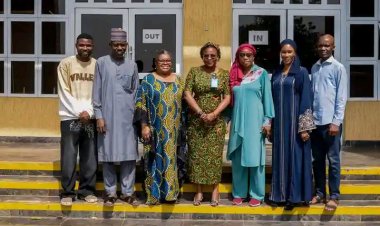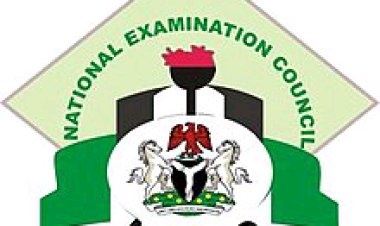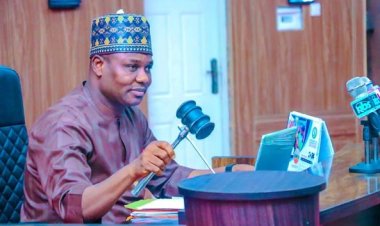Ekiti's Independent Power Project Commences Successful Test Run
Successful Test Run Initiates Ekiti State's Independent Power Project
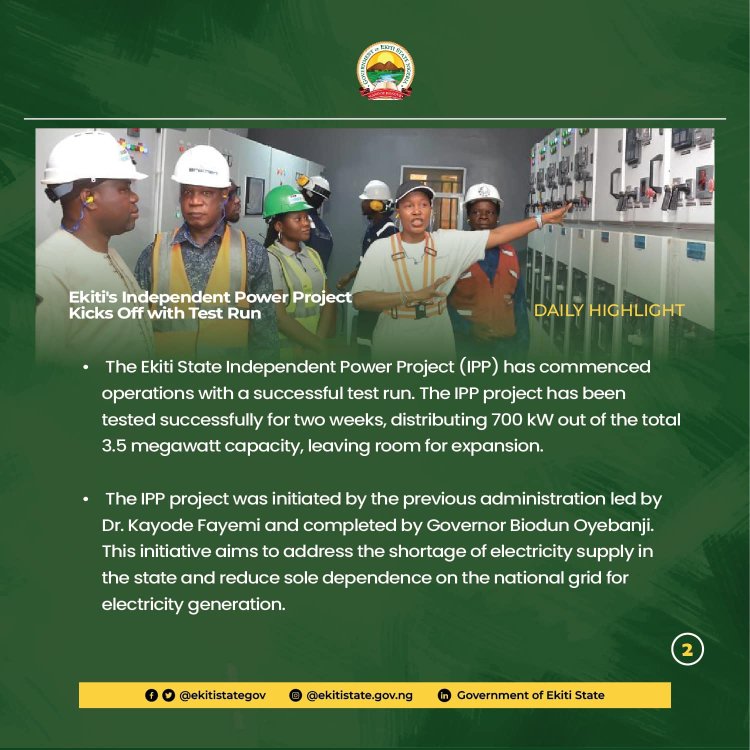
Ekiti State's Independent Power Project (IPP) has marked a significant milestone as it initiated successful test operations. Over the course of two weeks, the IPP project has demonstrated its capabilities by distributing 700 kW out of its total 3.5-megawatt capacity, with room for expansion.

This groundbreaking IPP initiative was set in motion by the previous administration under the leadership of Dr. Kayode Fayemi and has been brought to fruition by Governor Biodun Oyebanji. The primary objective of this endeavor is to tackle the state's electricity supply deficit and reduce reliance on the national grid for power generation.
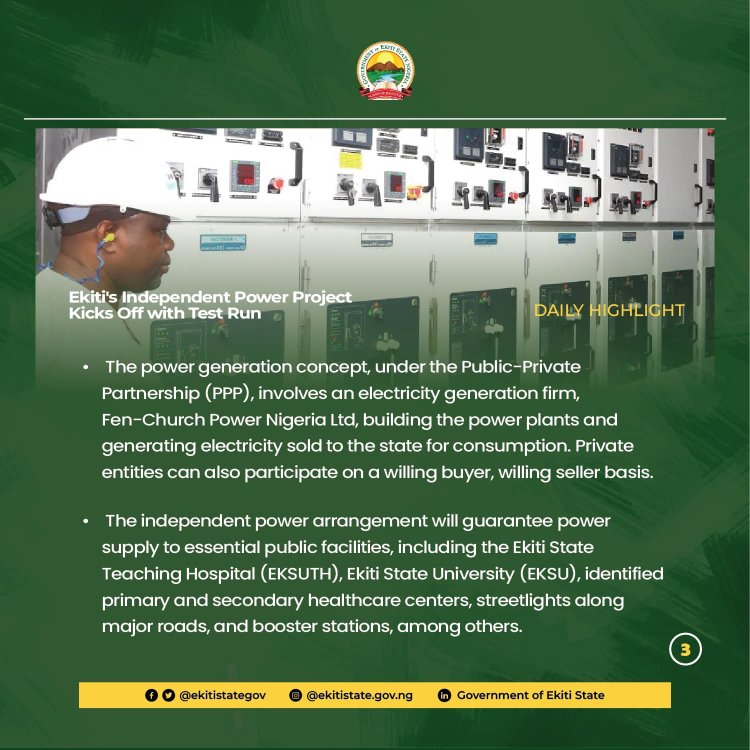
Operating under a Public-Private Partnership (PPP) model, the IPP project involves an electricity generation firm, Fen-Church Power Nigeria Ltd, establishing power plants and supplying electricity to the state for consumption. Private entities can also participate in this venture, following a willing buyer, willing seller framework.
SEE MORE>>> Ekiti State University (EKSU) Denies Imposing Unauthorized Fees on Students
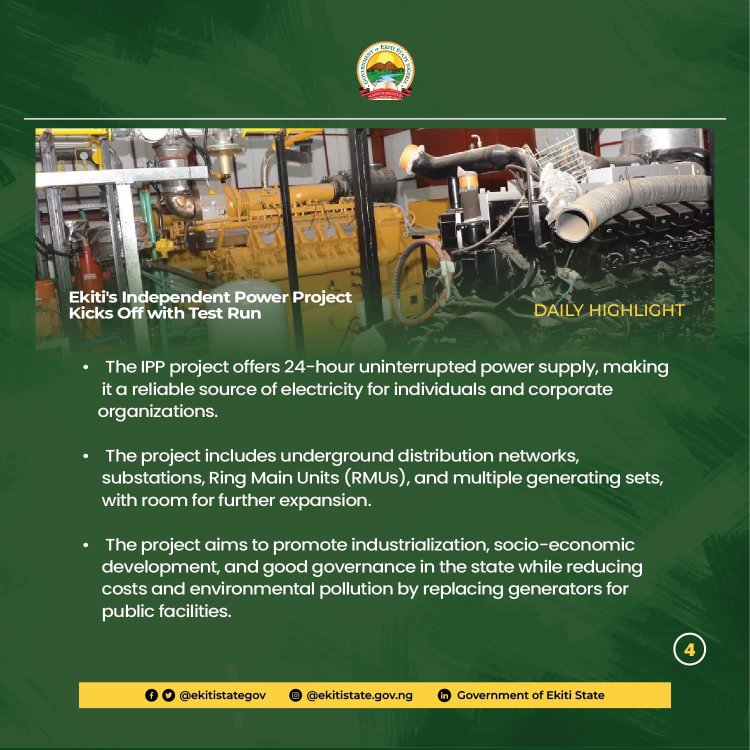
The autonomous power arrangement is poised to provide a consistent supply of electricity to critical public facilities, including the Ekiti State Teaching Hospital (EKSUTH), Ekiti State University (EKSU), designated primary and secondary healthcare centers, major road streetlights, booster stations, and more.
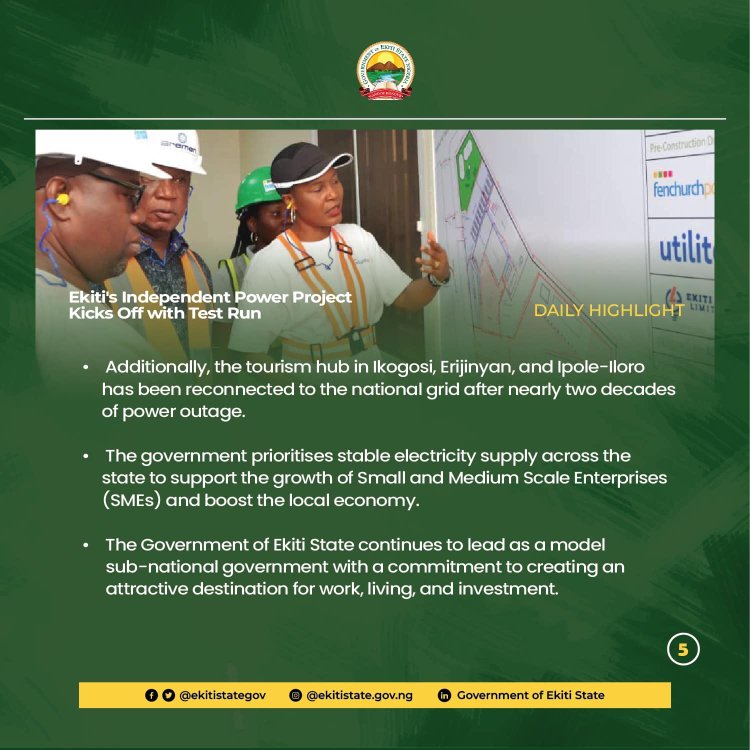
The IPP project assures uninterrupted power supply round the clock, making it a dependable source of electricity for both individuals and corporate entities. The project encompasses underground distribution networks, substations, Ring Main Units (RMUs), and multiple generating sets, with ample room for future expansion.
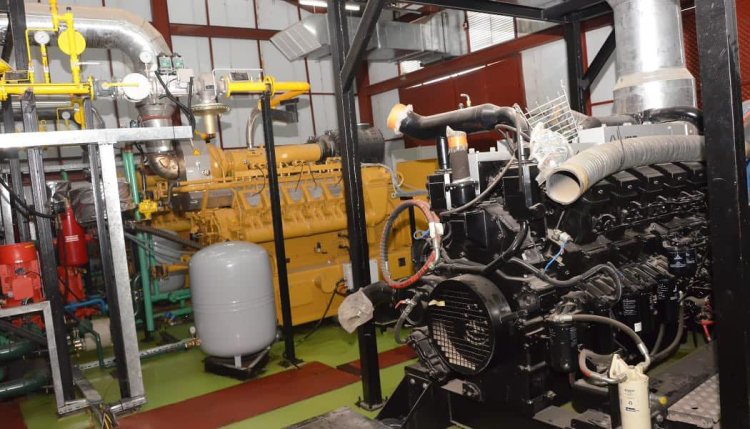
Beyond its practical benefits, this project is expected to stimulate industrialization, foster socio-economic development, and promote good governance in the state. Additionally, it will curtail costs and reduce environmental pollution by replacing generators in public facilities.
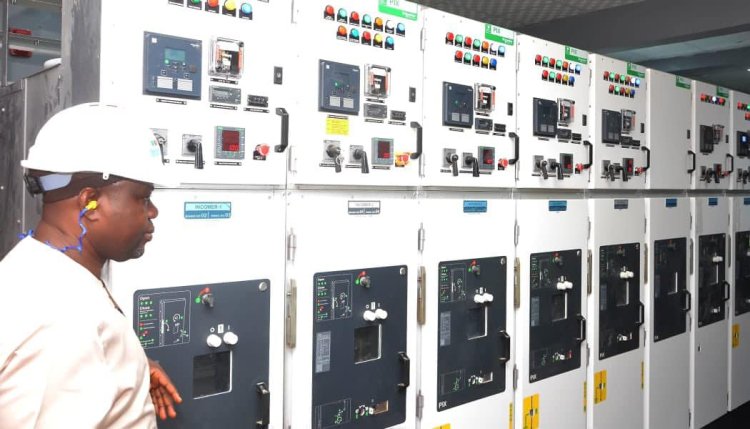
The government's commitment to enhancing access to electricity is evident in the restoration of power to areas like Ekiti East and Gbonyin (Ayekire) Local Government Areas (LGAs) after enduring 15 years of darkness. Furthermore, the tourism hubs in Ikogosi, Erijinyan, and Ipole-Iloro have been reconnected to the national grid after almost two decades without power.
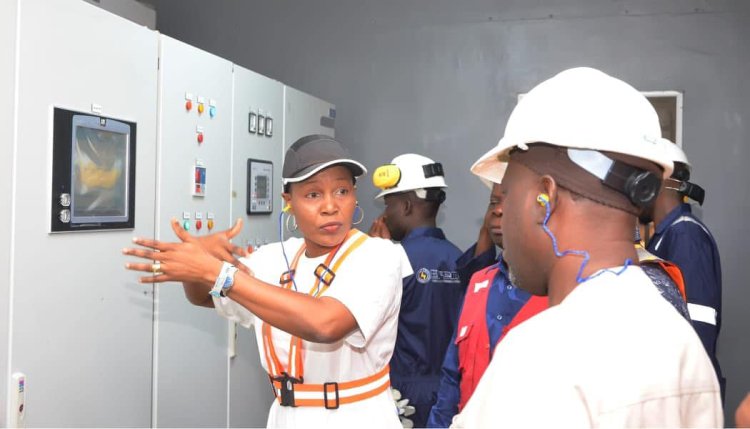
This initiative underscores the government's determination to ensure stable electricity supply across the state, which will not only support Small and Medium Scale Enterprises (SMEs) but also boost the local economy.
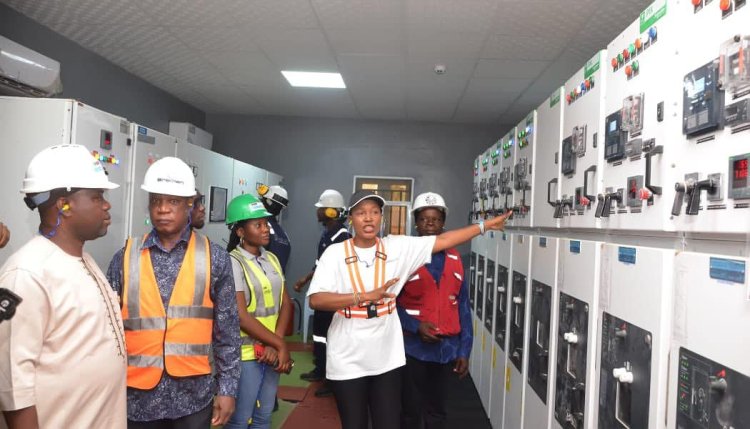
Ekiti State Government continues to lead by example as a sub-national entity committed to creating an attractive destination for work, residence, and investment.


